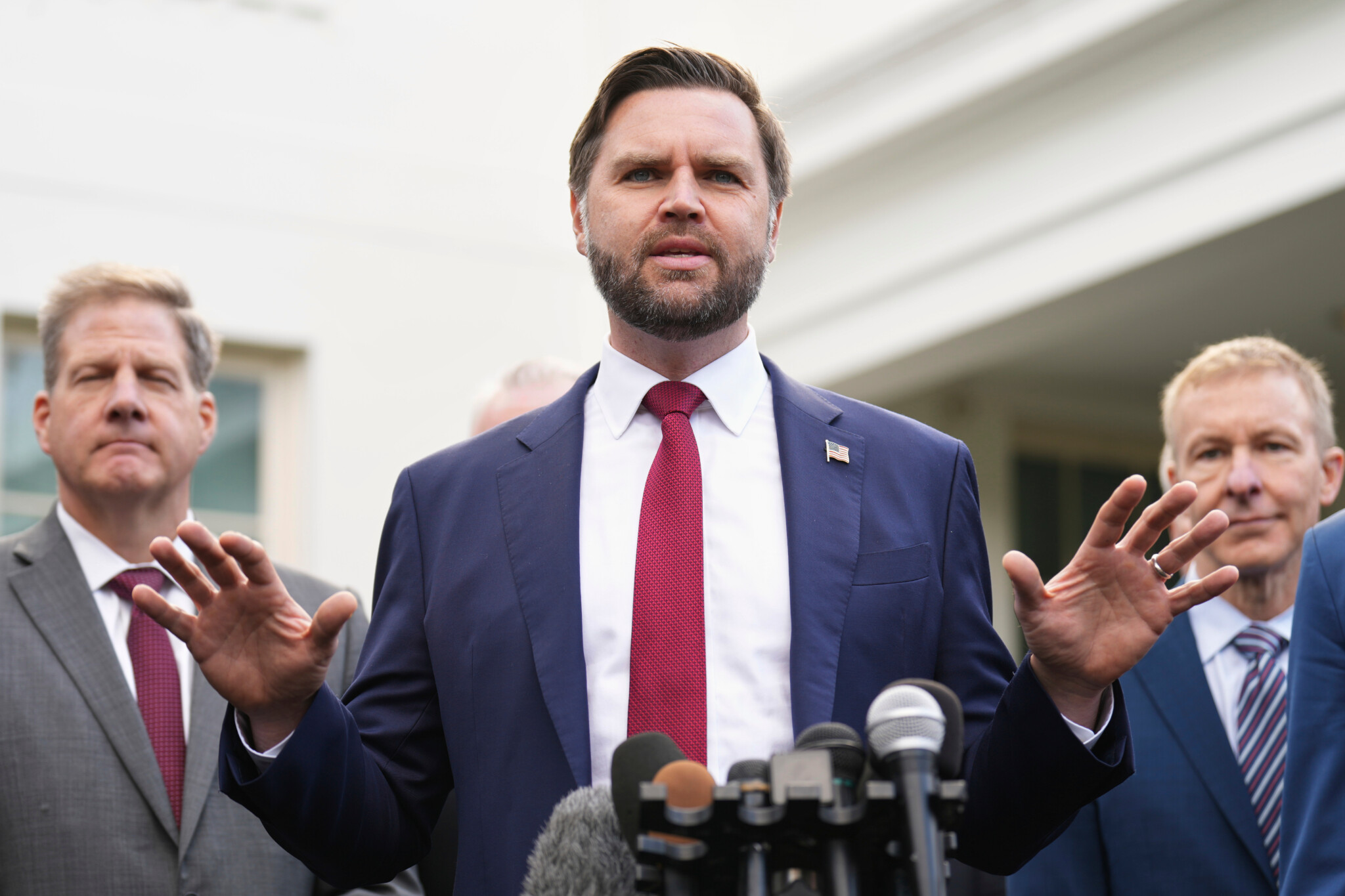‘A puerile exchange’: The Full Press on why JD Vance took aim at the CBC
Full Press breaks down why American Vice President JD Vance is going after Canadian immigration policies and the CBC, examines a decade-long #MeToo case that upended the Canadian writing world, and calls out the Fifth Estate for their biased investigation into how “safer” supply can cure Canada’s opioid crisis.
You can listen to this episode on Amazon, Apple, and Spotify.

Program Summary
This is an automated summary. Please check against delivery.
Canada’s political landscape faces mounting challenges as debates over immigration policy, drug policy coverage, and journalistic standards reveal deeper tensions about how the country addresses complex social issues. These interconnected concerns highlight a broader struggle to maintain civil discourse while navigating politically charged topics.
The immigration debate in Canada has undergone significant transformation in recent years, marking a departure from the longstanding cross-party consensus that historically characterized Canadian attitudes toward newcomers. This shift represents a notable change in how political leaders and the public discuss immigration matters. The conversation has increasingly focused on practical considerations such as housing availability and healthcare capacity rather than divisive rhetoric about cultural identity or belonging.
This approach stands in contrast to immigration discussions in the United States, where political figures have employed more inflammatory language. Canadian observers have expressed concern about potential spillover effects from American political rhetoric, particularly when foreign political leaders comment on Canadian immigration policy. The challenge lies in maintaining a distinctly Canadian approach that addresses legitimate infrastructure concerns without adopting the polarizing frameworks that have characterized debates elsewhere.
The state of Canadian journalism has emerged as another critical concern, particularly regarding coverage of contentious social issues. Recent documentary programming about drug policy and harm reduction strategies has sparked debate about whether media organizations adequately present multiple perspectives on complex topics. Questions have arisen about whether journalists sufficiently challenge activist narratives or provide audiences with comprehensive information needed to form independent judgments.
Coverage of drug policy illustrates these challenges. Documentary treatments of harm reduction programs and safe supply initiatives have been criticized for leaving significant information gaps, failing to explain terminology that may be unfamiliar to general audiences, and not adequately presenting opposing viewpoints. The concern extends beyond any single program to broader questions about journalistic methodology and the responsibility to present contested issues with appropriate skepticism and balance.
The principle of journalistic humility has gained renewed attention as stories evolve over time and initial narratives prove incomplete or incorrect. The recognition that conventional wisdom may be wrong, that activist perspectives require scrutiny regardless of their moral appeal, and that complex social problems rarely have simple solutions has become central to discussions about media responsibility.
A decade-old controversy within Canadian literary circles has resurfaced, demonstrating how allegations and counter-allegations can divide communities and destroy professional relationships. The case involves contested claims, ongoing legal proceedings, and fundamental questions about due process. The situation has proven divisive enough to fracture longstanding friendships and professional networks, with prominent cultural figures taking opposing positions.
This controversy underscores the difficulty of balancing competing imperatives: taking allegations seriously while maintaining procedural fairness, supporting those who come forward while avoiding rush to judgment, and acknowledging historical patterns of injustice while applying consistent principles across cases. The reluctance of many involved parties to defend their past positions publicly suggests the complexity of navigating these issues in real time.
How might foreign political commentary on Canadian immigration policy impact domestic discourse?
What are the key concerns regarding journalistic standards in covering complex social issues like drug policy?
What does the resurfaced #MeToo case reveal about navigating allegations and due process in Canada?



Comments (0)